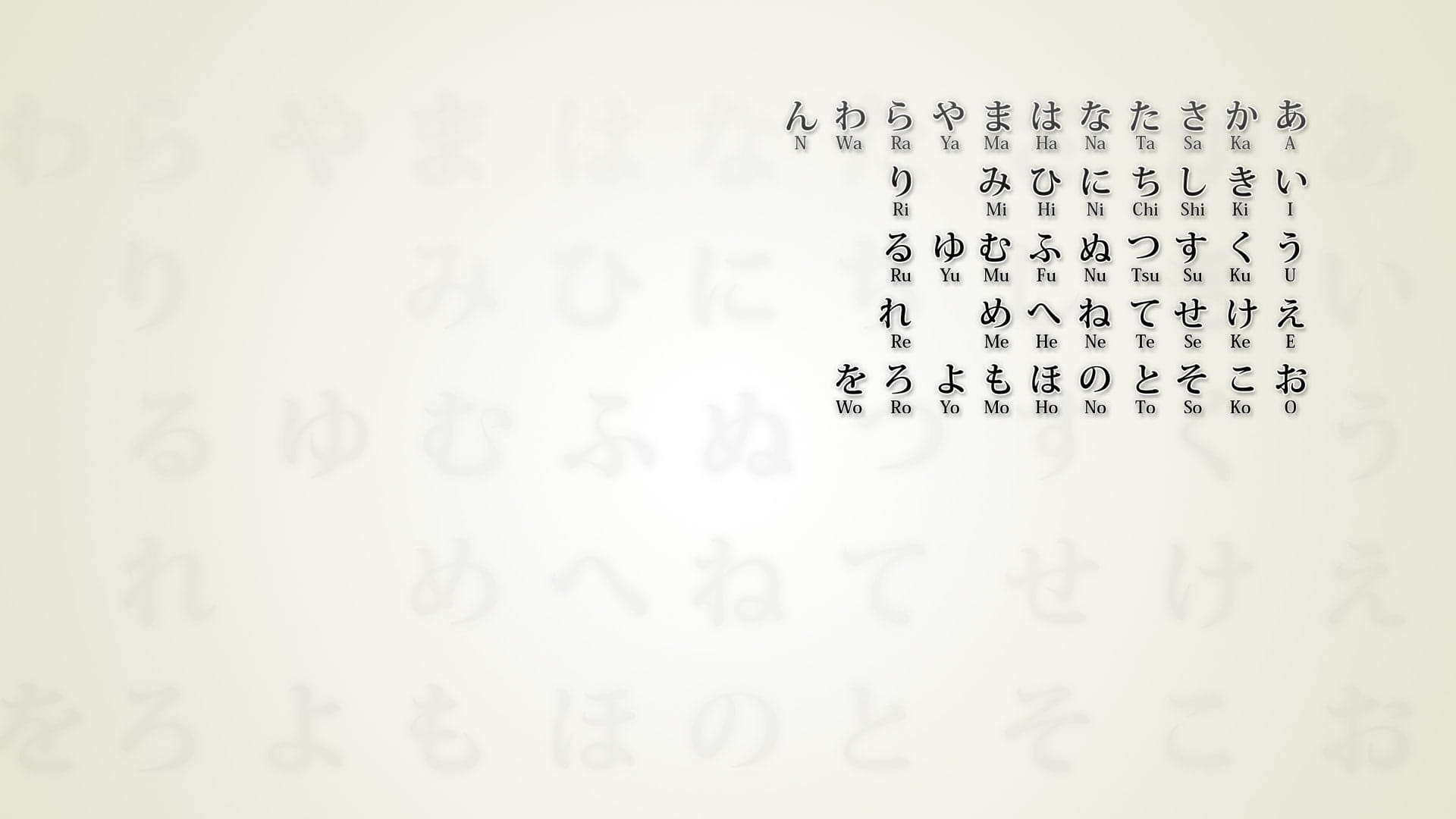Japanese #1

A starter of my Japanese learning journey
Why do I want to learn Japanese?
Ultimate reasons
At the tender age of 10, my anime adventure began with 'Maid Sama!' – a series that may not have had the most intricate plot, but its blend of humor and occasional seriousness captivated my young heart. Fast forward to delving into masterpieces like Demon Slayer, Attack on Titan, and Death Note, where stunning animations and gripping plots became my anime companions.

However, there was a catch. Every time I dared to blink away from the subtitles, my beloved characters' words became an enigma. Frustration fueled determination, and thus, my quest to learn Japanese ignited. Imagine understanding every phrase uttered by the heroes and villains who painted my anime world!

But that's not all – my journey into the realm of J-pop intensified my craving to unlock the secrets of Japanese. From Ado's powerful melodies to Kenshi Yonezu's soul-stirring tunes, and the enchanting creations of YOASOBI and Yuuri, each note stirred a desire to unravel the lyrics in their original language.
Being a Chinese speaker did offer some comforting similarities, but the unique pronunciations of kanji in Japanese threw me for a loop, prompting a reset of my linguistic compass. So here I am, ready to decode the mysteries of Japanese, with an ultimate goal firmly set in my sights – to seamlessly comprehend every sentence uttered in my beloved anime and seamlessly weave the language into my daily interactions when I encounter a Japanese friend in the years to come.
How am I learning it
My rollecoaster-like journey of learning Japanese
I started off by believing that binge-watching anime would magically imbue me with the wisdom of the Japanese language. Unfortunately, that wasn't the case. I couldn't comprehend a single phrase without subtitles, only recognizing common words like いただきます(Bon Appétit), お願いします (Please), ただいまー (Welcome home), お帰り (I'm home), 可愛い (cute), and 面白い (interesting). When it came to longer sentences involving grammar structure, I struggled to identify the simpler words and had to rely on subtitles.

Realizing that passive listening wasn't effective, I embarked on an on-and-off Duolingo quest. I would diligently do Duolingo lessons for a week, then stop for a month, only to regret giving up so easily. This cycle continued for years, resulting in minimal learning beyond a few basic words that helped me nod along when subtitles were on, without recognizing individual words in the absence of subtitles.

I attempted to enroll in some classes for my school's Week of Wonderment (WOW) project, opting for a Japanese course on Udemy. Despite the $60 investment, I failed to complete the course. I took notes, practiced writing katakana and kanji, learned some grammar, and promptly forgot 80% of the material a week later. It was a frustrating language learning experience, lacking enjoyment due to procrastination during the vacation and the lessons feeling forced and robotic.
Now, during this extended break, I've decided to revamp my learning style and focus more on practical applications.
One crucial question I posed to myself: Why do I want to learn Japanese?
If you've been following along, you know the answer: To understand anime and Japanese songs. So, I've chosen to use anime and Japanese songs as my primary learning mediums.
Anime

Starting with the subtitles of one of my favorite anime, Horimiya, I identify all the foreign vocabulary and compile them into a document with translations. Subsequently, I research the different grammar and sentence structures used in the anime's subtitles. After each episode, I watch the anime three more times. The first time, I turn on Japanese subtitles with my cheat sheet on the side. The second time, I still use Japanese subtitles but without the cheat sheet. For the third time, I watch the episode without any subtitles. This approach not only helps me learn Japanese but also allows me to enjoy watching anime without feeling guilty and actually have fun.
Japanese Songs

Lyrics generally don't have intricate sentence structures but may contain challenging or uncommon words related to Japanese culture. For this, I select songs that I can already sing by heart (yes, I memorized lip-syncing Japanese songs without understanding them) and search for YouTube videos analyzing those words. Channels like 日本語の森 may assist in the learning process.
Lastly, I'm determined not to let my previous $60 investment in the Udemy course go to waste. Therefore, I'll periodically revisit the course, testing myself on the vocabulary and grammar I learned from it.

Stay tuned for more Japanese learning insights
じゃ、またね

